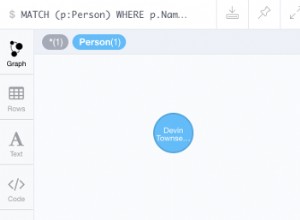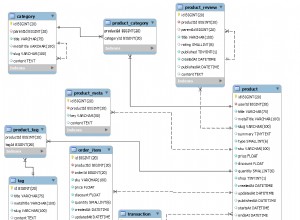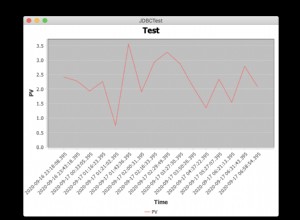Połączenie Swift z mysql i php jest bardzo proste. Najpierw potrzebujesz REST API. Możesz utworzyć restapi API, używając dowolnej dostępnej struktury. Możesz także zakodować swoją usługę sieciową używając tylko PHP. Więc tutaj pokażę użycie dowolnego frameworka php.
Więc najpierw utwórz plik do przechowywania stałych bazy danych.
<?php
/**
* Created by PhpStorm.
* User: Belal
* Date: 12/08/16
* Time: 7:58 PM
*/
define('DB_USERNAME', 'root');
define('DB_PASSWORD', '');
define('DB_HOST', 'localhost');
define('DB_NAME', 'iphone');
Następnie utwórz kolejny plik php, aby utworzyć połączenie z bazą danych.
<?php
class DbConnect
{
private $conn;
function __construct()
{
}
/**
* Establishing database connection
* @return database connection handler
*/
function connect()
{
require_once 'Config.php';
// Connecting to mysql database
$this->conn = new mysqli(DB_HOST, DB_USERNAME, DB_PASSWORD, DB_NAME);
// Check for database connection error
if (mysqli_connect_errno()) {
echo "Failed to connect to MySQL: " . mysqli_connect_error();
}
// returing connection resource
return $this->conn;
}
}
Teraz potrzebujesz jeszcze jednego pliku do obsługi operacji na bazie danych.
<?php
class DbOperation
{
private $conn;
//Constructor
function __construct()
{
require_once dirname(__FILE__) . '/Config.php';
require_once dirname(__FILE__) . '/DbConnect.php';
// opening db connection
$db = new DbConnect();
$this->conn = $db->connect();
}
//Function to create a new user
public function createTeam($name, $memberCount)
{
$stmt = $this->conn->prepare("INSERT INTO team(name, member) values(?, ?)");
$stmt->bind_param("si", $name, $memberCount);
$result = $stmt->execute();
$stmt->close();
if ($result) {
return true;
} else {
return false;
}
}
}
Na koniec musisz utworzyć plik php, który obsłuży twoje żądanie http.
<?php
//creating response array
$response = array();
if($_SERVER['REQUEST_METHOD']=='POST'){
//getting values
$teamName = $_POST['name'];
$memberCount = $_POST['member'];
//including the db operation file
require_once '../includes/DbOperation.php';
$db = new DbOperation();
//inserting values
if($db->createTeam($teamName,$memberCount)){
$response['error']=false;
$response['message']='Team added successfully';
}else{
$response['error']=true;
$response['message']='Could not add team';
}
}else{
$response['error']=true;
$response['message']='You are not authorized';
}
echo json_encode($response);
Teraz po prostu utwórz widoki w aplikacji iOS i po kliknięciu przycisku wyślij żądanie do pliku php. Kod jest następujący.
//
// ViewController.swift
// SwiftPHPMySQL
//
// Created by Belal Khan on 12/08/16.
// Copyright © 2016 Belal Khan. All rights reserved.
//
import UIKit
class ViewController: UIViewController {
//URL to our web service
let URL_SAVE_TEAM = "https://192.168.1.103/MyWebService/api/createteam.php"
//TextFields declarations
@IBOutlet weak var textFieldName: UITextField!
@IBOutlet weak var textFieldMember: UITextField!
//Button action method
@IBAction func buttonSave(sender: UIButton) {
//created NSURL
let requestURL = NSURL(string: URL_SAVE_TEAM)
//creating NSMutableURLRequest
let request = NSMutableURLRequest(URL: requestURL!)
//setting the method to post
request.HTTPMethod = "POST"
//getting values from text fields
let teamName=textFieldName.text
let memberCount = textFieldMember.text
//creating the post parameter by concatenating the keys and values from text field
let postParameters = "name="+teamName!+"&member="+memberCount!;
//adding the parameters to request body
request.HTTPBody = postParameters.dataUsingEncoding(NSUTF8StringEncoding)
//creating a task to send the post request
let task = NSURLSession.sharedSession().dataTaskWithRequest(request){
data, response, error in
if error != nil{
print("error is \(error)")
return;
}
//parsing the response
do {
//converting resonse to NSDictionary
let myJSON = try NSJSONSerialization.JSONObjectWithData(data!, options: .MutableContainers) as? NSDictionary
//parsing the json
if let parseJSON = myJSON {
//creating a string
var msg : String!
//getting the json response
msg = parseJSON["message"] as! String?
//printing the response
print(msg)
}
} catch {
print(error)
}
}
//executing the task
task.resume()
}
override func viewDidLoad() {
super.viewDidLoad()
// Do any additional setup after loading the view, typically from a nib.
}
override func didReceiveMemoryWarning() {
super.didReceiveMemoryWarning()
// Dispose of any resources that can be recreated.
}
}
Jeszcze jedną rzeczą, którą musisz zrobić, to dodać następujące wiersze do pliku Info.plist, ponieważ domyślnie nie możesz wysłać żądania do niezabezpieczonych adresów URL, więc ponieważ mamy http, musimy zrobić tę ostatnią rzecz.
<!-- add from here -->
<key>NSAppTransportSecurity</key>
<dict>
<key>NSAllowsArbitraryLoads</key>
<true/>
<key>NSExceptionDomains</key>
<dict>
<key>yourdomain.com</key>
<dict>
<key>NSIncludesSubdomains</key>
<true/>
<key>NSThirdPartyExceptionRequiresForwardSecrecy</key>
<false/>
</dict>
</dict>
</dict>
<!-- end of the code -->
Źródło:samouczek bazy danych MySQL na iOS




